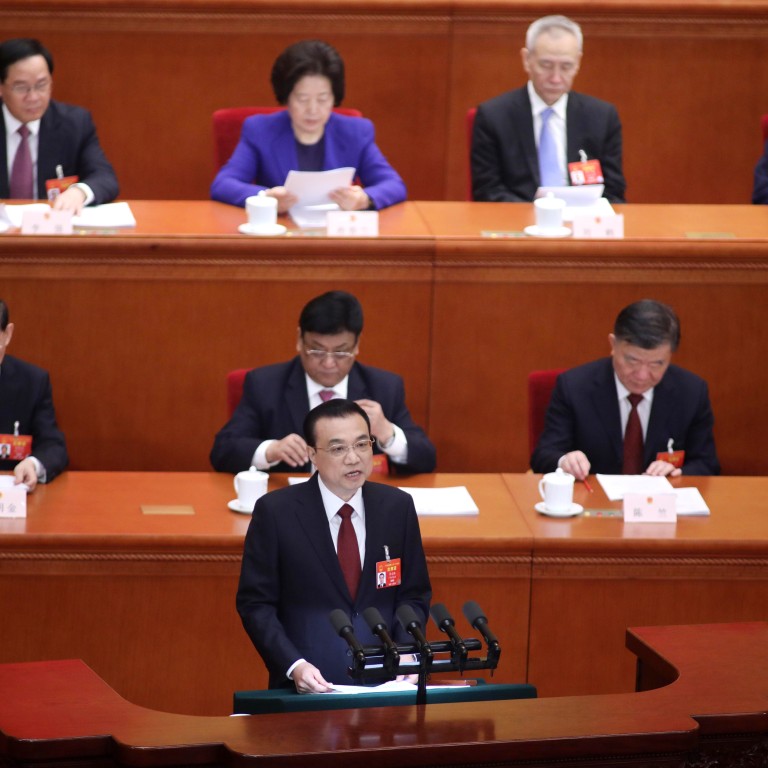
Beijing demands 30 per cent increase in banks’ lending to small companies in bid to boost flagging economy
- Move announced by Premier Li Keqiang could inject US$230 billion worth of capital into SMEs, according to one analyst’s estimate
- It is the first time Beijing has announced a specific target for loans to small companies in its annual work report
The Chinese government has set a mandatory target for the country’s commercial banks to increase lending to small companies by 30 per cent, as Beijing pushes to bolster opportunities for private firms to stimulate an economy that is slowing amid a trade war with the United States.
Beijing will “make solid efforts” to solve the funding difficulties facing many companies, Chinese Premier Li Keqiang said on Tuesday during his 2019 government work report. State-owned large banks must boost their lending to small firms by more than 30 per cent.
The government will also step up targeted cuts in the reserve requirement ratio to spur lending to private companies, he said, referring to the amount of cash banks must keep in reserve which is therefore unavailable for loans.
“It is the first time that the government report has made a specific target for lending to small companies,” said Chen Shujin, chief financial analyst at Huatai Financial Holdings in Hong Kong.
The move could inject as much as 1.8 trillion yuan (US$230 billion) worth of fresh capital into small companies, she said, noting that only between 2 and 6 per cent of the loans made by China’s biggest five banks goes to small companies.
The government also pledged to further level the playing field for foreign companies by relaxing restrictions on investment, and enhancing protection of their legal rights. The US and European countries have frequently complained about the unfair competition they face from domestic companies in China.
Li was delivering a report reviewing the government’s work in 2018 and setting the tone for the year ahead at the start of the National People’s Congress in Beijing.
There was hearty applause from the roughly 5,000 delegates when Li announced a plan to cut company taxes and fees by nearly 2 trillion yuan (US$298.31 billion) in the coming year, to ease the burden on firms and help them grow.
In the coming week, the law makers are expected to pass a new foreign investment law, partly designed to appease Washington. It would ban the mandatory transfer of technologies from foreign companies – a major sticking point in US-China trade talks – and encourage cooperation in the field of innovation.
In his two-hour long address to the country’s top law makers and political advisors, Li lay down a broad target for 2019 with emphasis on “stability” in six fields: employment, finance, cross-border trade, foreign investment, general investment and expectation.
Private companies and foreign investment are two key engines for economic growth and innovation in the Chinese economy, said Sun Wujun, a professor at the School of Business of Nanjing University.
“China is exploring ways to open up and make itself attractive to foreign investment – as President Xi pointed out, China needs to make changes, but there are also things that cannot be changed, including certain industrial policies. There will be a continued struggle, back and forth between China and foreign investments,” he said.
Foreign direct investment in China rose by 3 per cent year-on-year to US$135 billion last year, official data shows, marking a slowdown from growth rates of 7.9 per cent in 2017 and 4.1 per cent in 2016.

